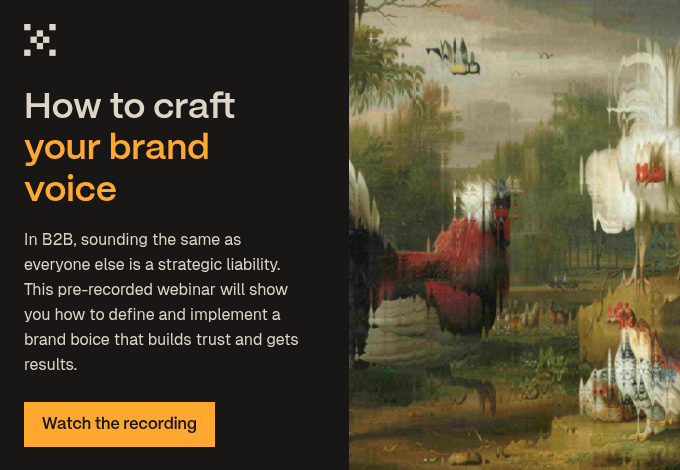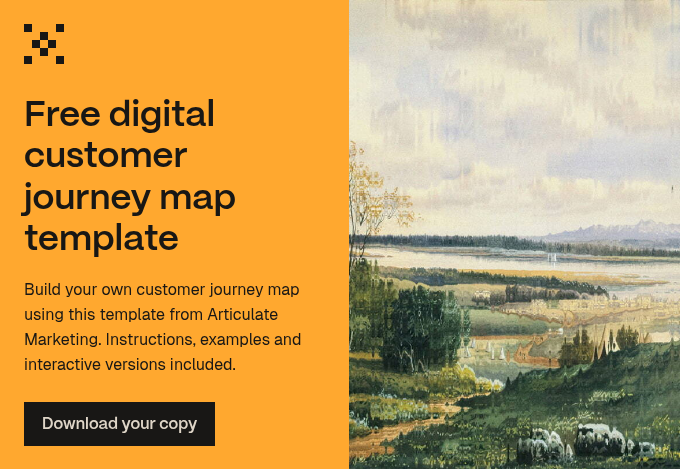Marketing guru Seth Godin says, ‘Tactics are disposable. Strategy is for the long haul.’ Basically, having a few tricks up your sleeve does not a marketer make. You need a flexible, data-driven marketing strategy to win over your audience and grow your business.
Creating that strategy yourself is hard. It’s complex. It’s high stakes. That’s why most businesses hire third-party professionals to help them make those critical decisions.
But the question is, do you hire a marketing strategy agency or a marketing strategy consultant?
Just what is a marketing strategy?
If you Google the above question, you’re going to get a few different definitions. But we like HubSpot’s take on it (we’re a HubSpot Diamond Solutions Partner, in case you didn’t know):
‘A marketing strategy is a plan for reaching a specific marketing-related goal (or goals) in a focused and achievable way. It takes into consideration what your business is currently doing well and what you're missing in regards to the objective you set, so you're more likely to accomplish it.’
Let’s be clear. A marketing strategy isn’t a silver bullet. It won’t conjure sales leads from thin air. A successful marketing strategy takes foresight, insight, and more than a little elbow grease. And finding the person — or people — to achieve all this can be a process in itself.
What to expect when you hire a marketing strategy consultant
A marketing strategy consultant is the one person responsible for your marketing strategy, and all the work that informs it. That means they know your pain points and goals inside and out. They’ll also be your only point of contact throughout the entire process, which can make anyone feel pretty darn special.
Alas, they don’t come cheap. Depending on the consultant’s experience and qualifications, they can ask for as much as £250 per hour. That’s two grand a day.
And too often, consultants can suffer from the ‘man in the mirror’ problem. This is when they assume the customers are just like them, instead of trying to solve their issues in a language they can relate to. When there’s just a singular person consulting on your marketing strategy, getting the diverse perspective you need can be difficult.
A good consultant will be aware of this inherent bias, however, and will engage in research to create a strategy that will reach and resonate with your targeted audience.
As an agency, we have every respect for consultants. We’ve worked with consultants for a variety of our own projects, from improving processes to increasing sales. In doing so, we avoided costly trial and error, and were able to make quick, informed decisions to better our ways of working.
What to expect when you hire a marketing strategy agency
A marketing strategy agency — like Articulate Marketing — has a plethora of experience in dealing with multiple clients, often at the same time. While some might argue this means we can’t possibly focus on providing the best service to everyone, the opposite is in fact true.
You see, a marketing strategy agency is good at… well… strategy (and marketing, naturally). This means that we’re not just skilled in reaching your target audience, but also in how we allocate resources, those being a diverse bunch of multi-talented people.
- Agencies have multiple brains, rather than just one. This means lots of ideas from people with different specialties in the marketing spectrum. It also means you get the diverse perspective you need to reach a broad audience, and ensures your strategy doesn’t suffer from tunnel vision.
- Agencies won’t try to shoehorn a strategy into one ‘tried and true system’ (like many consultants do because they once wrote a book about it). Instead, they can be more flexible and provide an approach that works for you.
- Agencies are less likely to over-inflate costs based on ego. The more experience the consultant gains, the more they’re going to charge. With an agency, you might have to pay more for an hour of the CEO’s time, but for most projects you won’t need this.
- Agencies will be clear on pricing. Hidden costs just aren’t a thing with (most) agencies. They have transparent pricing system so clients have complete clarity about what they’re paying for at every step.
- Agencies provide greater ROI. Agencies on average cost around £700 per day for strategy services. Depending on the level of experience of the consultant (and the size of their ego!), their daily rate can be three times as much.
- Agencies deliver on time. They’ll set a deadline and stick to it. This is because they have more than one person handling all aspects of the strategy, and clear workflows for handling the project from start to finish.
- Agencies have third-party accreditations you can trust. Meaning they’ll put the work in to make sure their teams get trained, informed, and are generally kick-ass. And they’ll not be afraid to shout about it.
- Agencies have the insights. Often, consultants make their impact harder to track and analyse. An agency is much more likely to show you the numbers and be accountable.
- Agencies are sticklers for the rules. Yes, lone wolves are very cool. But they also tend to be loose cannons. Agencies have things like contracts and compliances that make sure everyone gets what they agreed upon.
- Agencies can take the strategy and turn it into deliverables so you don’t need to engage multiple third parties to get the work done. Quite a differentiating factor, we think you’ll agree.
And of course, a marketing strategy agency will have a client service department. So while a consultant might be too busy juggling all their other projects to take your call, an agency will have someone who’s always happy to hear from you.
Why not both?
Why not, indeed? If you want big results, swing big, right? Here at Articulate we have some clients who work with a marketing consultant and our agency, operating at different levels of strategy. It allows us to bring our expertise to certain areas while leaving some aspects (like PR - we don’t do PR!) to them. We love these relationships. We are simpatico. Together, we make magic happen.
But enough talk about strategy - what happens next? What about implementation? Should you get an in-house person or team, or hire an agency? Well, we have some thoughts on that, too.

 Posted by
Rachel Kennedy
Posted by
Rachel Kennedy




.jpg?width=400&height=250&name=museum-of-new-zealand-te-papa-tongarewa-tQG9yuNiCkc-unsplash%20(1).jpg)

